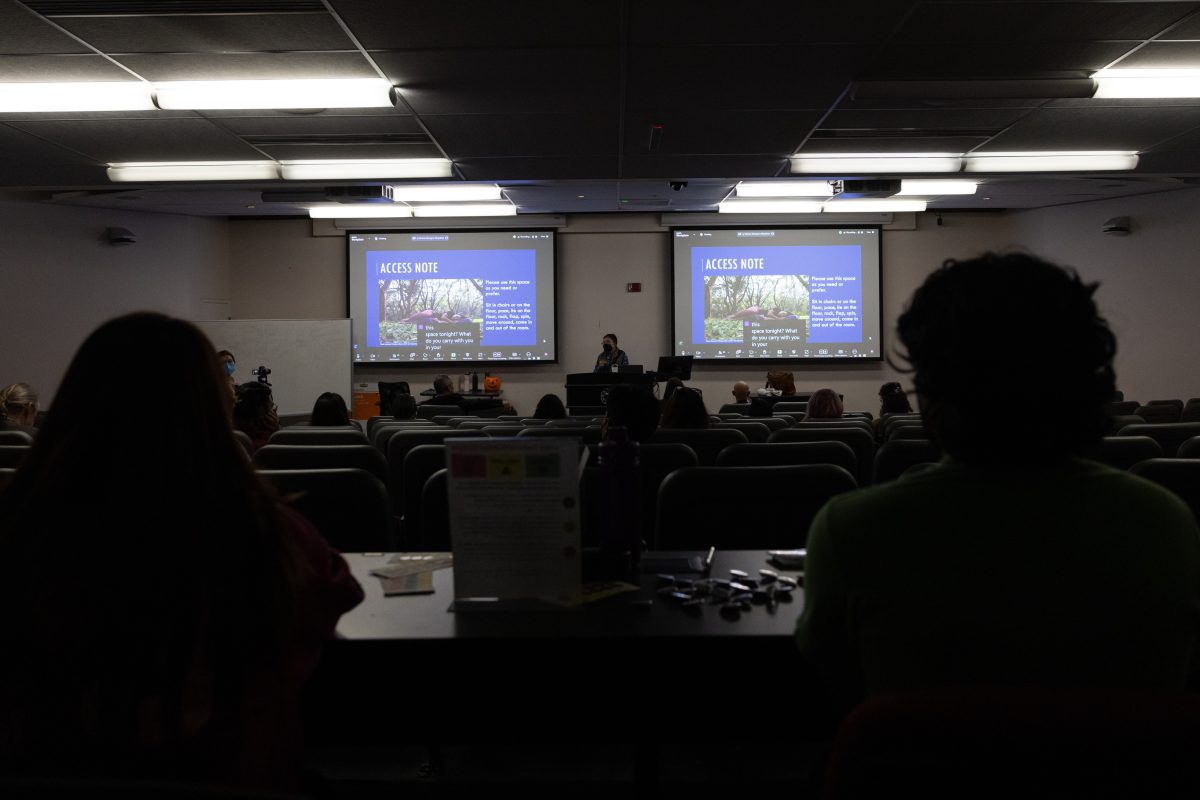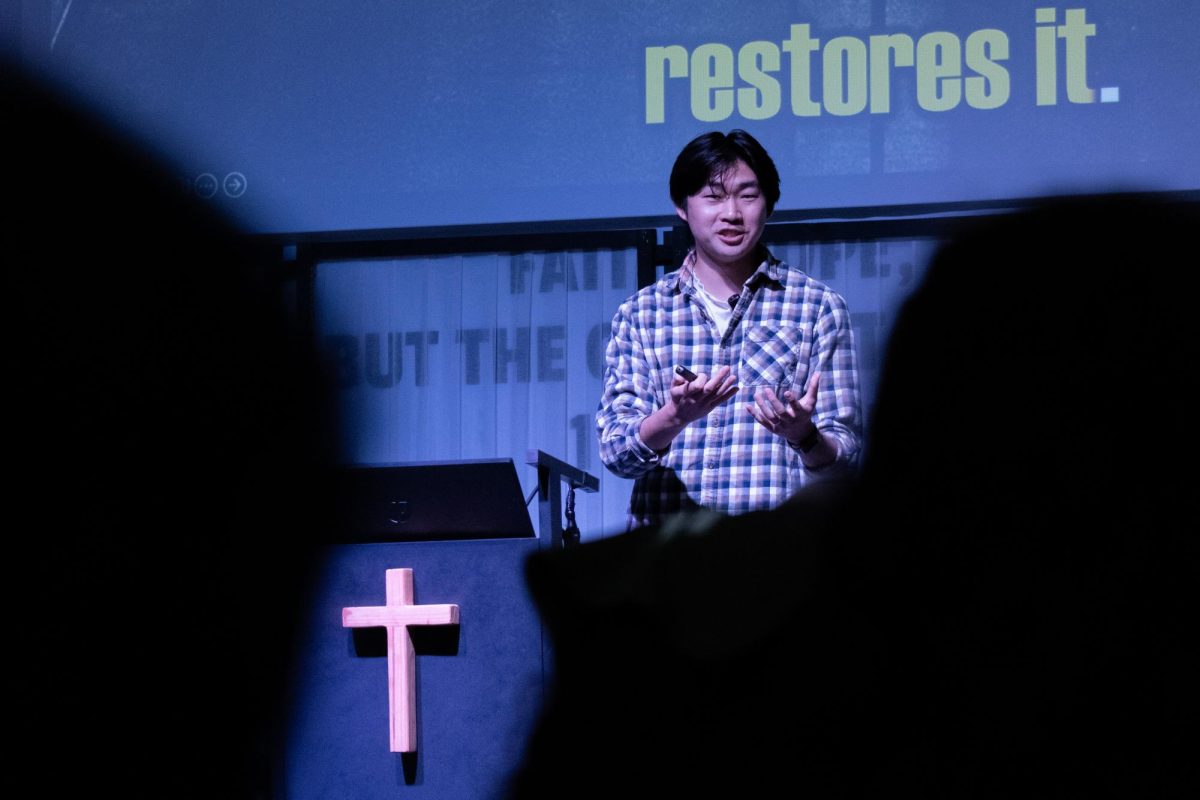CSUN’s College of Humanities celebrated the launch of its new Disability Studies minor by hosting attorney, disability rights activist, and Autistic People of Color Fund founder Xinzhen Zh?ngsun (Lydia X. Z. Brown) as the keynote speaker for an event titled “Visioning Liberated Futures” on Oct. 24.
“Disability matters to justice because disabled people are present now because we do not experience disability the same way, we do not experience ableism the same way, and we deserve to be present in the future,” Brown said about how different disabled people can be and that they deserve to have lives and equity.
This is the first Disabilities Studies minor in the California State University system, made possible by CSUN’s advisory committee which helped bring this program to life. Currently, eight students are enrolled in the minor, which is available to all CSUN students.
Brown explains how bodies all have requirements that require us to be gentle to our bodies, but we unconsciously ignore our body’s cries to fulfill either due to obligation and/or conform to social norms.
“This is a core foundational axiom of a disability justice framework. Our bodies and minds all have needs, our needs deserve to be met, and so often they never are,” said Brown.
Disability is a spectrum comprising those who can have physical challenges, but they can also be invisible, with some not being seen by the typical person. According to the CDC, a disability is “a condition of the body or mind that makes it more difficult to do certain activities and interact with the world around them.”
Brown was recognized as a “Champion of Change” by the Obama Administration at the White House in 2013.
“We are expected to keep carrying on business as usual when at least 35 million people have died of COVID-19 since the beginning of a pandemic that is still ongoing now and is not in fact over. We are witnessing global fascism in terms of authoritarian politics and non-state actors enacting vigilante violence based on caste, based on religion, based on race, based on artificially determined national borders. We are living in a time of crisis and nobody that I know is okay,” Brown said, expressing concern about the current global challenges.
Brown references Mimi Khúc’s lecture, “The Professor is Ill,” which addresses how people are required to be well even though the system is a cyclical whirlpool where people must pretend to be okay and even call out people who are not doing well.
Brown outlined five reasons on why disability matters to justice: crisis of ableism, intersectional oppression, sustainability in movement, disabled futures, and collective liberation. They explained that ableism impacts everyone, though is often difficult to define.
“Pretty much every system in our society has some form of ableism levied against people of all sorts. And pretty much every system in our society has some form of ableism levied against disabled people of all sorts,” Brown said.
The definition posed about what ableism is, an entire system of values and beliefs that targets disabled people and harms everyone. It is structural, systemic, and institutional, overall, it is about power. Ableism is necessary for and dependent on every other form of oppression that exists. This was the definition of ableism given in the presentation by Brown.
The main question posed is: Why does disability matter to justice?
“Anyone can become disabled at any time. Anyone who is already disabled can become more and differently disabled at any time. And disability does not affect us all the same way,” Brown said.
“So disability matters to justice because of whether or not someone holds a position of privilege because of their particular gender or race or otherwise, disability is present in every struggle for justice and for freedom,” Brown said.
For more information about the Disability Studies Minor, click here.






